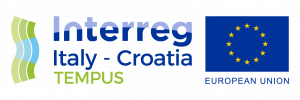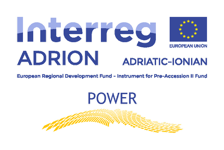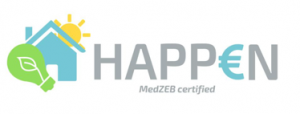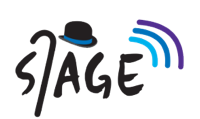Study, Design and development of innovative IT-based systems
ICT IN LANDSCAPE AND BUILT ENVIRONMENT TRANSFORMATION AND REGENERATION PROCESSES
In 2016 ITC has launched a new research programme dealing with urban regeneration and local development topics,by studying and testing methodologies to design territorial & urban strategies based on social and foresight paradigms, and by testing innovative collaborative governance modelsby implementing dedicated ICT instruments.
| OBJECTIVES
|
• Support territories to design & implement regeneration and development strategies capable to integrate the three dimensions of the Strategy «Europe 2020»;
• Support the entrepreneurial realm to develop & test new products and services; |
| FOCUS AREAS
|
• cultural heritage (landscapes and architectures);
• dismissed/abandoned areas located in different urban contexts ; • internal areas with a focus on mountain villages which particularly suffer from seismic hazard and lack of smartness
|
| TOOLS
|
• methodology based on inclusive approach to develop new socio-economic paradigms;
• ICT to design and implement collaborative platforms and e-governement tools; • exploitation of public/private contract models
|
| THEMES
|
1. Urban regeneration;
2. Innovative solutions for the built environment
|
THEME 1: Urban regeneration

TEMPUS – TEMPorary Uses as start-up actions to enhance port (in)tangible heritage
Project ID: 10044521
Start date: 01.01.2019
Project duration: 30 months
Funded by the Interreg V A Italy-Croatia CBC Programme
Call for proposals: 2017 Standard
Priority Axis: Environment and Cultural Heritage
Specific Objective: 3.1 – Make natural and cultural heritage a leverage for sustainable and more balanced territorial development
The TEMPUS project aims at testing an experimental methodology for the urban regeneration of dismissed urban port areas, based on the co-creation of long-term, heritage-driven and community-led urban strategies. Thanks to deep social activation, cultural valorization and stakeholders’ engagement, TEMPUS will activate temporary (re)uses within three pilot port areas (Ravenna, Solin, Rijeka), intended as trigger actions for the implementation of longer-term regeneration strategies.
TEMPUS aims to reconnect cities to their ports, create a new sense of living the places, and to support entrepreneurship in the fields of creativity, culture and tourism. TEMPUS long-term primary objective is to enhance a new economic development based on the valorization of the hidden tangible and intangible port heritage, including the archaeological background and natural contexts, through the start-up of Temporary Uses Actions (TUAs).
Project Consortium
Lead Partner
Istituto per le Tecnolgie della Costruzione – Consiglio Nazionale delle Ricerche (ITC-CNR)
Project partners
National confederation of handcrafts and of SMEs (CNA)
Alma Mater Studiorum – University of Bologna (UNIBo)
Building materials certification – CERTIMAC
Rijeka development agency Porin Ltd. (RDA Porin)
Public Institution RERASD (RERA)
City of Solin
Maritime and History museum of the Croatian littoral Rijeka (PPMHP)
City of Rijeka
Total Budget: € 2.706.920,00
Total EU (ERDF) Contribution: € 2.300.882,00
Total National Co-financing: € 406.038,00
 PoWER – Ports as driving Wheels of Enterpreneurial Realm (Interreg ADRION, Innovative and Smart Region – project duration 24 months from Jan 1, 2018): PoWER aims at supporting the evolution of ADRION ports into Innovation Hubs able to act as new transmission belts among regions and to exploit their untapped entrepreneurial potential. An original approach will be applied to 6 pilot areas to connect key actors triggering Innovation Supply Chains in the energy sector thus developing, and simultaneously testing, a Methodology, a Strategy and an ICT Platform, the fundamental tools that will underpin the Innovation Hubs Network also after the project end.
PoWER – Ports as driving Wheels of Enterpreneurial Realm (Interreg ADRION, Innovative and Smart Region – project duration 24 months from Jan 1, 2018): PoWER aims at supporting the evolution of ADRION ports into Innovation Hubs able to act as new transmission belts among regions and to exploit their untapped entrepreneurial potential. An original approach will be applied to 6 pilot areas to connect key actors triggering Innovation Supply Chains in the energy sector thus developing, and simultaneously testing, a Methodology, a Strategy and an ICT Platform, the fundamental tools that will underpin the Innovation Hubs Network also after the project end.
 HAPPEN – Holistic APproach and Platform for the deep renovation of the Med residential built Environment (Horizon 2020 – Research and Innovation Framework Programme, H2020-EE-2017-CSA-PPI – project duration 36 months from Apr 1, 2018): HAPPEN is aimed at stimulating the market uptake of deep retrofitting of buildings, with special regard for the Mediterranean area, by tackling major bottlenecks such as fragmentation of the retrofitting market and of the supply chain, lack of transparency and of perceived reliability of the interventions, etc. HAPPEN will propose a comprehensive framework of conditions for enhancing the overall appeal and convenience of deep renovation, by defining a new MEDZEB approach (Mediterranean Zero Energy Building) which will act on the weakest link of the supply chain (the demand side) through an ICT platform, the construction of a system of guarantees, the activation of three main Pilots.
HAPPEN – Holistic APproach and Platform for the deep renovation of the Med residential built Environment (Horizon 2020 – Research and Innovation Framework Programme, H2020-EE-2017-CSA-PPI – project duration 36 months from Apr 1, 2018): HAPPEN is aimed at stimulating the market uptake of deep retrofitting of buildings, with special regard for the Mediterranean area, by tackling major bottlenecks such as fragmentation of the retrofitting market and of the supply chain, lack of transparency and of perceived reliability of the interventions, etc. HAPPEN will propose a comprehensive framework of conditions for enhancing the overall appeal and convenience of deep renovation, by defining a new MEDZEB approach (Mediterranean Zero Energy Building) which will act on the weakest link of the supply chain (the demand side) through an ICT platform, the construction of a system of guarantees, the activation of three main Pilots.
 AESS – Archivio di Etnografia e Storia Sociale (Accordo di collaborazione tra Regione Lombardia e ITC-CNR): AESS si propone di: individuare buone pratiche e metodologie scientifiche che garantiscano, attraverso l’uso di strumenti tecnologici innovativi e semplificati, l’inventariazione, la catalogazione e la valorizzazione del patrimonio culturale immateriale; garantire la presenza in rete di questo patrimonio specializzando il sistema degli Ecomusei, in particolare includendo, con strategie innovative, la partecipazione delle comunità territoriali lombarde, e sostenendo la missione degli istituti culturali nel favorire l’accesso e la conservazione del proprio patrimonio in ambiente digitale; favorire, con nuove strategie informatiche e soluzioni tecnologiche, l’accesso alla libera consultazione.
AESS – Archivio di Etnografia e Storia Sociale (Accordo di collaborazione tra Regione Lombardia e ITC-CNR): AESS si propone di: individuare buone pratiche e metodologie scientifiche che garantiscano, attraverso l’uso di strumenti tecnologici innovativi e semplificati, l’inventariazione, la catalogazione e la valorizzazione del patrimonio culturale immateriale; garantire la presenza in rete di questo patrimonio specializzando il sistema degli Ecomusei, in particolare includendo, con strategie innovative, la partecipazione delle comunità territoriali lombarde, e sostenendo la missione degli istituti culturali nel favorire l’accesso e la conservazione del proprio patrimonio in ambiente digitale; favorire, con nuove strategie informatiche e soluzioni tecnologiche, l’accesso alla libera consultazione.
 TerreAttive (Accordo di collaborazione tra VI Comunità Montana del Velino e ITC-CNR): TerreAttive intende delineare una mappa del territorio, dei suoi bisogni, delle sue risorse attraverso un insieme integrato di servizi ICT . sviluppo di una piattaforma ICT mirata a finalizzare il potenziale delle Tecnologie dell’Informazione e della Comunicazione al supporto e all’implementazione delle attività condotte sul territorio, migliorandone la qualità e la quantità e ampliando, di conseguenza, lo spettro degli utenti coinvolti.
TerreAttive (Accordo di collaborazione tra VI Comunità Montana del Velino e ITC-CNR): TerreAttive intende delineare una mappa del territorio, dei suoi bisogni, delle sue risorse attraverso un insieme integrato di servizi ICT . sviluppo di una piattaforma ICT mirata a finalizzare il potenziale delle Tecnologie dell’Informazione e della Comunicazione al supporto e all’implementazione delle attività condotte sul territorio, migliorandone la qualità e la quantità e ampliando, di conseguenza, lo spettro degli utenti coinvolti.
THEME 2: Innovative solutions for the built environment
 STAGE – Streaming of Theatre and Arts for old aGe Entertainment (Call for Proposals AAL 2015): STAGE aims at developing an easy-to-use ICT platform to deliver cultural and educational content to older people via video streaming technology through customised interfaces and will include events such as theatre plays, concerts, opera performances and museum exhibits.
STAGE – Streaming of Theatre and Arts for old aGe Entertainment (Call for Proposals AAL 2015): STAGE aims at developing an easy-to-use ICT platform to deliver cultural and educational content to older people via video streaming technology through customised interfaces and will include events such as theatre plays, concerts, opera performances and museum exhibits.
 PROGRESSIVE – Progressive standards around ICT for active healthy ageing (Call for Proposals H2020-SC1-2016-2017): PROGRESSIVE investigates standards in ICT for active and healthy and ageing (AHA).
PROGRESSIVE – Progressive standards around ICT for active healthy ageing (Call for Proposals H2020-SC1-2016-2017): PROGRESSIVE investigates standards in ICT for active and healthy and ageing (AHA).
Standards are rules or guidelines that help to make sure that products, processes or services are fit for purpose. Some standards are adopted across different countries and commercial sectors, making it easier for companies to sell their goods and services and for consumers to get a better deal.
